When Will Disney World Park Reservations End?
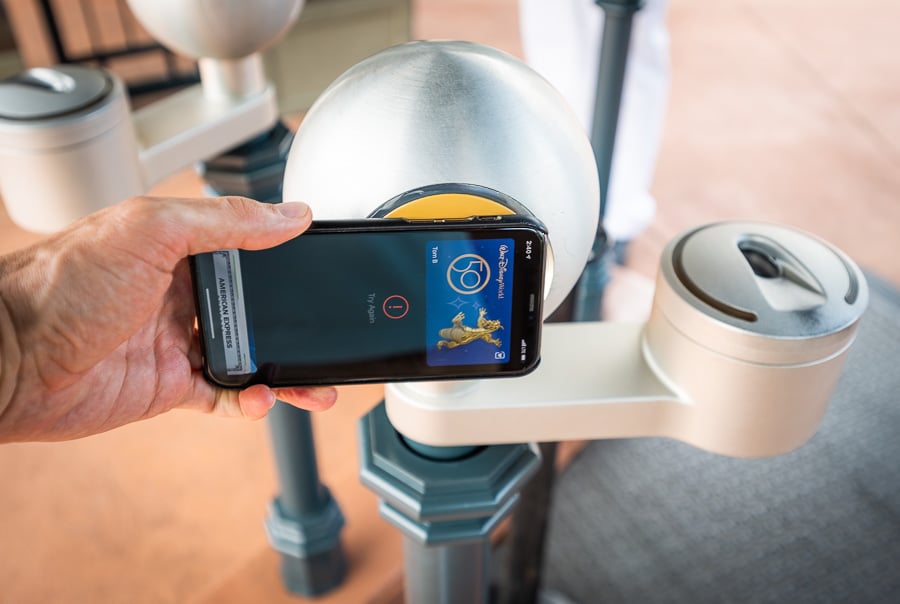
“When will Walt Disney World stop requiring theme park reservations?” for Annual Passholders and regular guests is a common question among guests frustrated about the extra step to visit Magic Kingdom, Hollywood Studios, EPCOT, and Animal Kingdom. This post discusses the end of reservations, reasons for restrictions, and crowd control goals. (Updated January 9, 2024.)
Let’s start with the very good news, which is that the vast majority of regular guests no longer need theme park reservations when visiting Walt Disney World. Starting with visits on January 9, 2024, theme park reservations are no longer be required for date-based tickets. A date-based ticket requires you to choose a start date when you purchase. For other admission types, theme park reservations may be required.
If you’re a regular tourist who isn’t an Annual Passholder, there’s about a 98% chance you will not need park reservations for Walt Disney World anymore. Pretty much all vacation packages booked through DisneyWorld.com or travel agents include date-based tickets, with the only notable exclusions being student groups, tour groups, convention guests, youth sport event guests, military tickets, and (again) Annual Passes. The rest of this post is irrelevant to you–stop reading, because the answer for you to the titular question is RIGHT NOW.
If you’re not an Annual Passholder or part of one of those excluded groups, you also may want to stop reading, because you may not like what we have to say about the future of the Disney Park Pass theme park reservation system for booking entry to Magic Kingdom, EPCOT, Hollywood Studios, and Animal Kingdom.
As you’re no doubt aware, this system was originally introduced due to the parks operating at significantly reduced capacity when the parks reopened. At that time, attendance was capped at ~20% of normal levels, a number that gradually increased to 35% the following spring.
Health safety protocol are now gone entirely and have been for a while, staffing shortages are mostly a thing of the past, and many Annual Passholders and other ticket types are wondering when the reservation system will also be retired for them. That’s what this post addresses…
![]()
When it comes to the U.S. Military Salute and other aforementioned regular ticket types (youth teams doing events at ESPN Wide World of Sports, Disney Meetings & Events, tour groups, and other bulk tickets), our expectation is that theme park reservations will stick around for the remainder of 2024.
That’s partly a matter of Walt Disney World signaling as much with the current reservations calendar running through January 18, 2025. It’s also partly a matter of assessing crowd dynamics and demand absent the Park Pass system for all other regular ticket types. Once park management knows it’s not going to be a problem to drop reservations for the rest of these groups, they’ll do so.
There’s actually an incentive for them to do so, as the Disney Park Pass infrastructure for regular ticket types differs slightly from the system for Annual Passholders. So keeping it around incurs maintenance and support costs, and ends up being a hassle that takes time for Cast Members when there are inevitably issues. If there’s no need for these groups to have reservations, keeping the system around is counterproductive. It could certainly happen before that January 18, 2025 date–but we’ve seen how cautious and slow Walt Disney World has been in undoing post reopening changes.
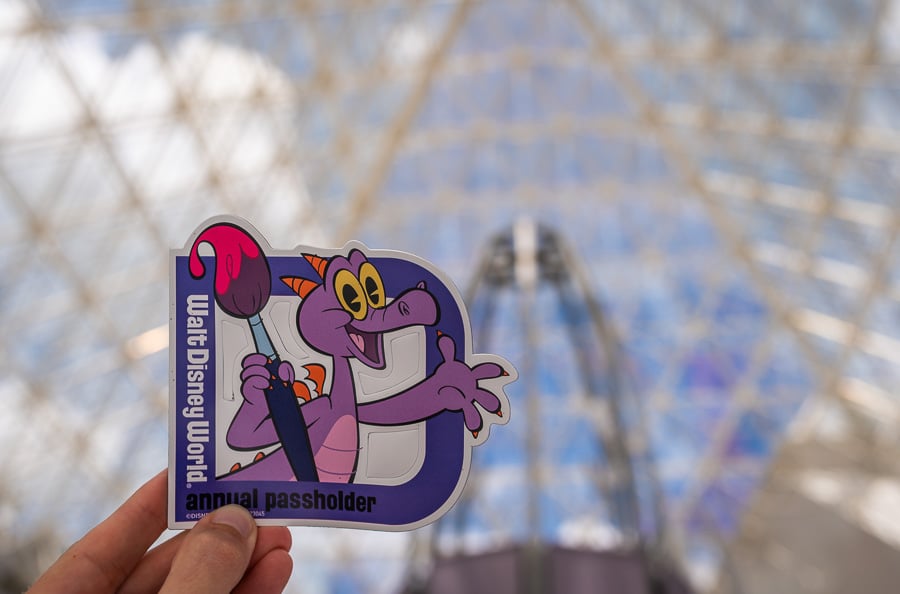
As for Annual Passholders, let’s start with the good news, which is that Walt Disney World is introducing “good-to-go days” for Annual Passholders and Cast Members. On these “good-to-go days,” Annual Passholders and Cast Members may visit theme parks without needing a park reservation.
The theme park reservation calendar, Annual Passholder admissions calendar and My Disney Experience app will show days that are good-to-go. The first good-to-go days will be added to the calendars starting January 11, 2024. Good-to-go days will take the place of bonus reservations, and like bonus reservations, they will be added periodically and may be released days or weeks in advance.
If an Annual Passholder has an upcoming theme park reservation that becomes a good-to-go day, the reservation will be removed and no longer count against their maximum reservation hold, but they will still be able to view their previous reservation in the My Plans section in My Disney Experience.
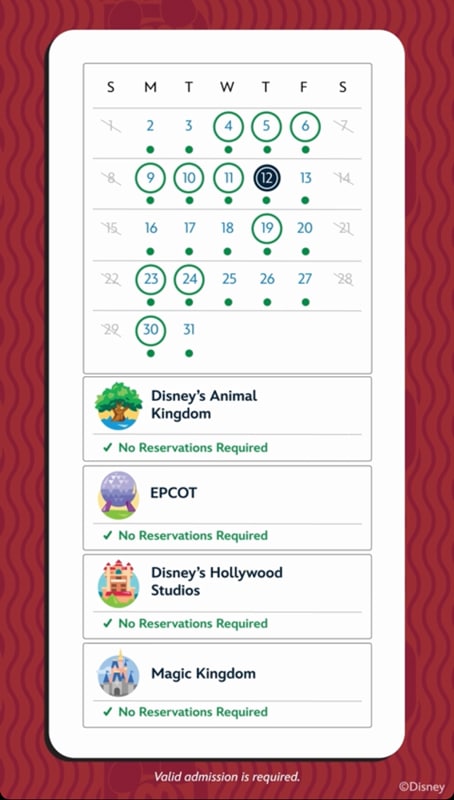
Our expectation is that a majority of dates in 2024 end up being good-to-go at Walt Disney World. In all likelihood, Walt Disney World will start slowly and scale up, adding a handful of winter off-season dates on January 11, 2024 and seeing how that goes. If the parks are not inundated and overwhelmed by reservationless APs (and they won’t be), they will add more and more good-to-go dates to the calendar.
We’d be willing to bet that by the time late April 2024 rolls around, at least half the dates in early summer will be good-to-go for Annual Passholders. It wouldn’t be the least bit surprising if every single day is good-to-go for Animal Kingdom and EPCOT, and reservations are only necessary for Magic Kingdom and Disney’s Hollywood Studios. By late summer/early fall, it wouldn’t be surprising if between 75% and all dates are good-to-go for all parks.
During the second half of the year, it’ll probably be easier to list the dates that are not good-to-go rather than the ones that are. For that, our preliminary prediction would be that reservations will be required for only (roughly) the ‘worst’ dates in our list of the 10 Best and 10 Worst Weeks to Visit Walt Disney World in 2024 & 2025.
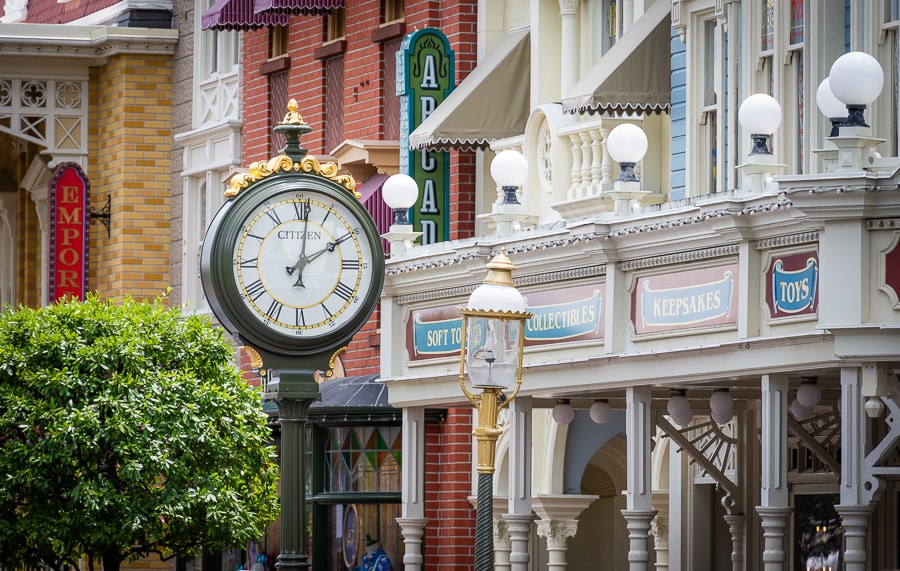
In addition to this, Annual Passholders are able to enter the theme parks after 2 p.m. without needing to make a reservation, regardless of whether or not it’s a good-to-go day. The exceptions to that is Magic Kingdom on weekends, but it’s still a pretty big deal–especially for APs who previously enjoyed being able to do a spontaneous afternoon or evening visit after work. Suffice to say, a lot of the normal use cases for local Walt Disney World Annual Passholders will not require reservations in 2024.
Finally, there have been a lot of questions about Annual Passholders with resort reservations, which should be their own distinct category that has been favored up until now. Thus far in January 2024, there have been no changes for this group. Our guess is that this is an oversight–that APs with on-site resort reservations have been lost in the shuffle, for lack of a better term.
It’s also possible that there are backend IT limitations preventing Disney from dropping reservations for this group without doing manual overrides, since (as noted above) the systems are slightly different. We would like to think that Walt Disney World will quickly address this, and on-site resort guests who are also Annual Passholders won’t need theme park reservations in the very near future.
Honestly, though, we have no clue. It’s possible this would necessitate too much additional work for Disney IT or the good-to-go days plus extra reservations allotted to on-site Annual Passholders is deemed sufficient at addressing this. And for practical purposes, it probably is. This is one scenario where we wouldn’t be surprised if park reservations are dropped for on-site APs next week or never. Obviously two extremes, both of which are plausible from our perspective. Not very helpful, we know. Sorry.
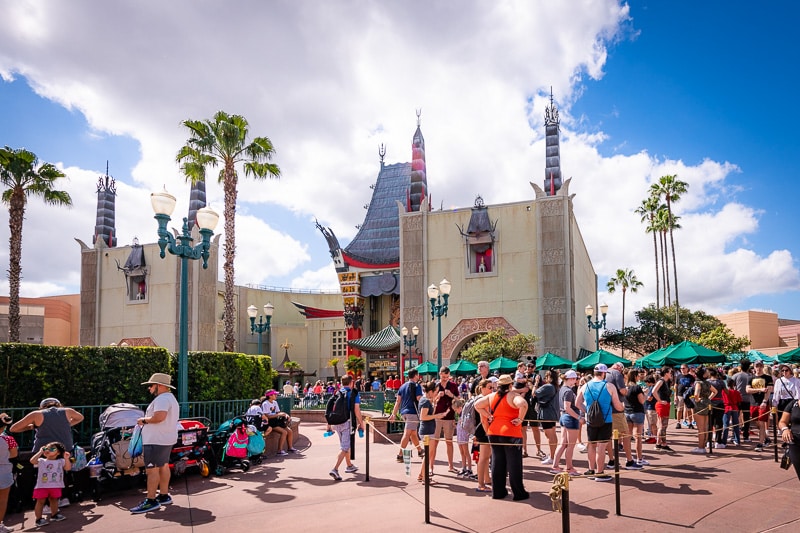
As a general matter, theme park reservations are likely here to stay for Cast Members and Annual Passholders in some form or fashion. For what it’s worth, this has been our prediction since the system was implemented in 2020–that it would eventually be retired for tourists but stick around to some degree for CMs and APs. As it turns out, we were correct.
So our prediction now is that Cast Members and Annual Passholders will still be making theme park reservations in 2025 and probably 2026. Our past predictions weren’t exactly bold and neither is our current one. The basis for this is simple, and predates the 2020 closure.
Back in 2019, current Parks Chairman Josh D’Amaro was the head of Disneyland when the Flex Pass–an Annual Pass with some dates that required reservations–debuted there; D’Amaro was reportedly an advocate for the reservation system for Cast Members. The 2024 system of a blockout calendar paired with good-to-go dates is literally identical to the Flex Pass (right down to the “good-to-go” term!). Suffice to say, this is something that had been in the works at Disney for a while.
Given the introduction of the Flex Pass at Disneyland, overall increases in attendance in early 2020, and population explosion in Central Florida, theme park reservations were an inevitability for Walt Disney World APs and CMs. Even if the closure and everything else never happened, it’s highly likely that Cast Members and at least some tiers of Annual Passes would be required to make park reservations in 2024. It might not look like the current system, but it wouldn’t be like 2019, either.
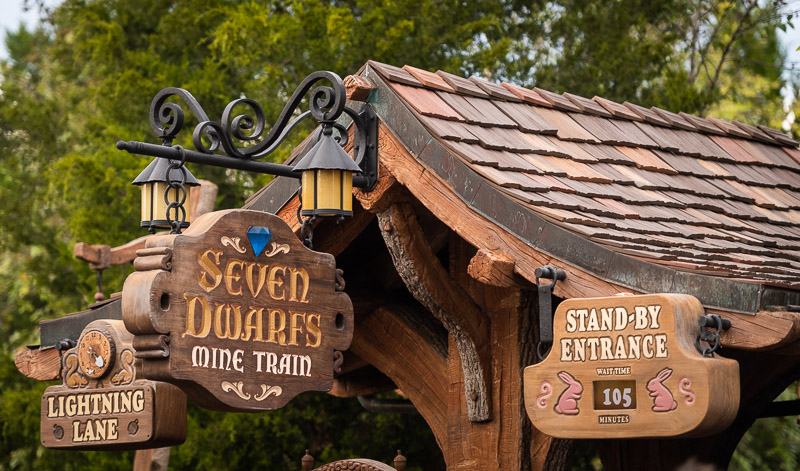
Retaining reservations for APs and CMs gives Disney control over the attendance mix, and allows the company to prioritize tourists who spend more per visit on average. Although Disney wants Annual Passholders and Cast Members to visit–and spend money–when there’s excess capacity, the circumstances are different when the parks are busier.
Even if there is a more pronounced winter off-season slowdown, the economy enters a recession, or pent-up demand exhausts itself, it’s still likely that the peak weeks around Thanksgiving, Christmas, and New Year’s Eve will continue to be very busy. It thus makes sense that Walt Disney World would want to prioritize resort guests and other tourists and not fill the parks with Annual Passholders at the expense of more lucrative vacationers during busier dates.
Hence the compromise of no reservations on slower days or after 2 pm most days for APs (and still subject to blockouts–which includes much of the holiday season for all tiers but the Incredi-Pass). That’s also why we do not expect park reservations to be retired for Annual Passes in 2025 and probably not 2026.
What’s more likely than reservations being totally retired for all Annual Passholders is the introduction of a new top-tier of Annual Pass that doesn’t require reservations and has no blockout dates. The kind of AP that, if you’re wondering how much it would cost, is too expensive for you.
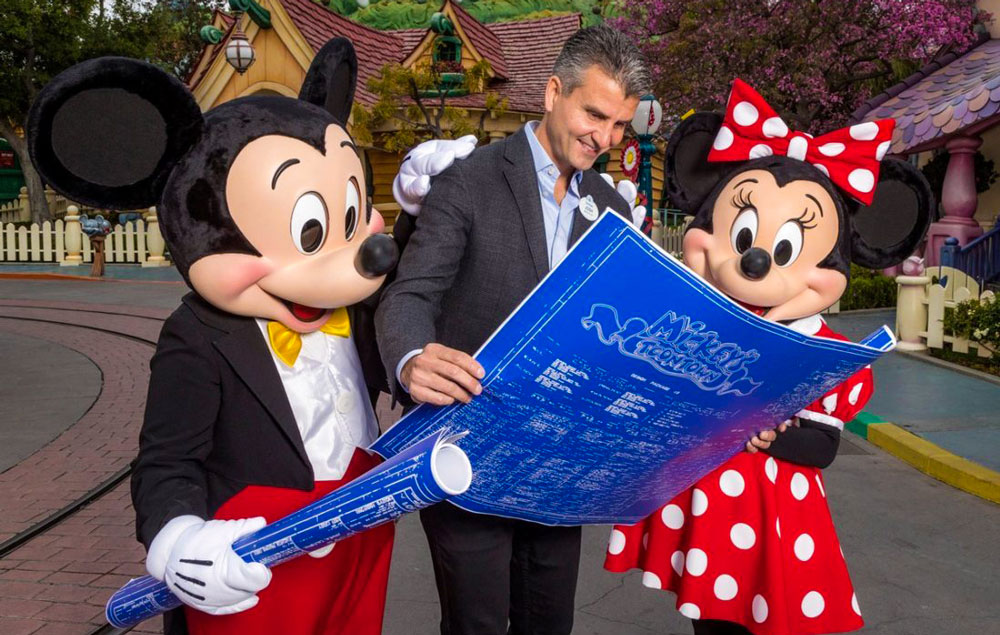
As for the why of this, leadership has been pretty clear. During several interviews about the future of the theme parks over the course of the last two years, Josh D’Amaro has shared a similar perspective, indicating that Walt Disney World is “choreographing” the guest experience, pushing technology in a way that Disney has wanted to for a long time. He has pointed to the Disney Park Pass reservation system, as well as Mobile Order, contactless payment, and various virtual queues.
D’Amaro has noted that these technologies are leading to better Cast Member and guest experiences, and has said that many are probably here to stay. In past interviews, D’Amaro has not said with any specificity which components will stick around. His comments have been more to tout Walt Disney World’s use of technology, and indicate they’ll continue to do so going forward. Which should be obvious.
Disney’s desire to better leverage technology should not come as a surprise. The multi-billion dollar NextGen initiative—including My Disney Experience, FastPass+, MagicBands, and interactive queues—was envisioned as a way for Walt Disney World to operate more efficiently. There were grandiose plans for how the project would offer Disney the data necessary to streamline operations, deploy on-demand entertainment, manage staffing, and effectively utilize other resources.
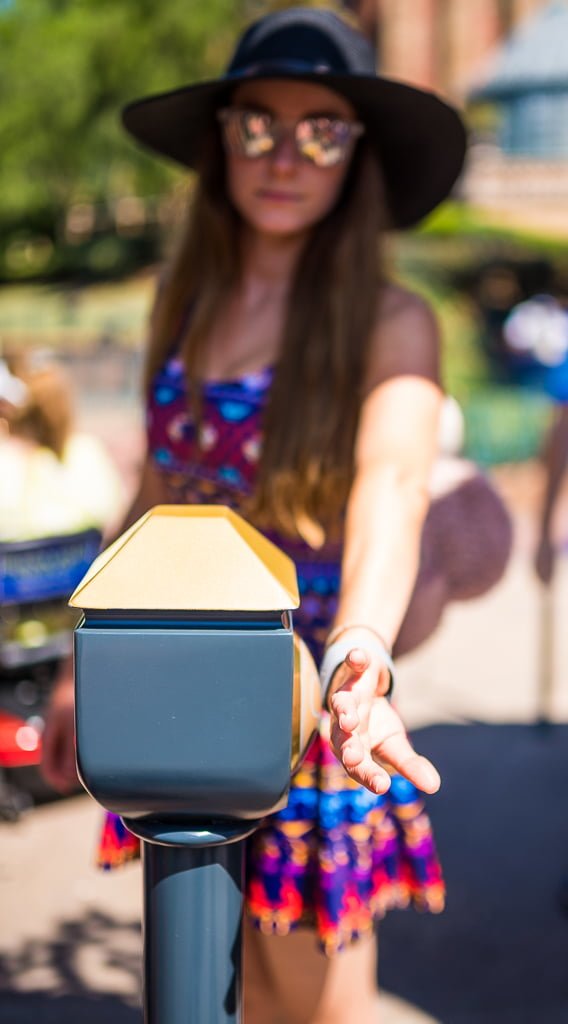
Aside from the guest-facing components like FastPass+ and MagicBands, almost none of the big goals that justified the colossal investment were realized. In large part, this is why My Disney Experience wasn’t ported to other parks around the globe; instead those parks cherry-picked various aspects of the system to build their own, stripped-down incarnations. (See “The Messy Business of Reinventing Happiness” and “Behind the Scenes at Disney As it Purged a Favorite Son” if you’re interested in more on the trials and tribulations of NextGen.)
The lesson to be learned from the goals of NextGen as imagined versus what came to fruition is that Disney’s plans don’t always come true. While executives salivate at the prospect of leveraging big data and analytics to decrease staffing and achieve more efficient operations, all of this only works to the extent that there’s guest buy-in. (Not to mention the tech “playing nice” with Walt Disney World’s legacy IT–something that still hasn’t totally happened with the NextGen additions.)
Quite simply, Walt Disney World cannot unilaterally push through more stringent and regimented planning “resources” without regard for the guest experience and satisfaction. While FastPass+ was initially met with skepticism by long-time fans (something true of literally any change at Walt Disney World), it was eventually embraced by guests. Some still criticized it or expressed a preference for paper FastPasses or no virtual queues at all, but it was sufficiently popular.
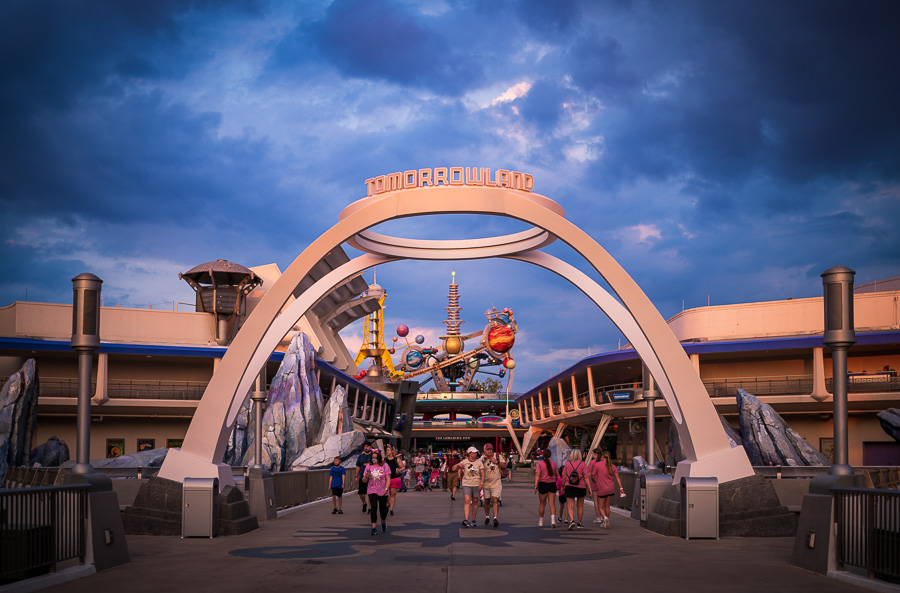
It’s also worth emphasizing that My Disney Experience rolled out at a time when Walt Disney World’s attendance had started to soar, giving the company some latitude in making decisions not warmly embraced by guests.
The circumstances were very similar when Disney Park Pass was first introduced…but not anymore. In his interviews during 2021-2022, D’Amaro acknowledged that Walt Disney World was benefitting from pent-up demand. That ceased to be the case about a year ago, and Disney is now seeing the backside of revenge travel. Accordingly, the company now needs to be more responsive to the guest experience and satisfaction.
Disney Park Pass is viewed as an impediment and another reservation to make. It creates uncertainty, headaches, and many guests blame the reservation system for planning problems or rigidity in their vacations. Some have been shut out of visiting entirely due to Park Pass, and have an unfavorable opinion of it as a result.
In the grand scheme of Walt Disney World “approval ratings,” theme park reservations fall somewhere between Stitch Ate the Page! and Stitch’s Great Escape. So it makes complete sense that, as pent-up demand is exhausted and the system has outlived its usefulness for tourists, Walt Disney World would remove this friction for most guests.
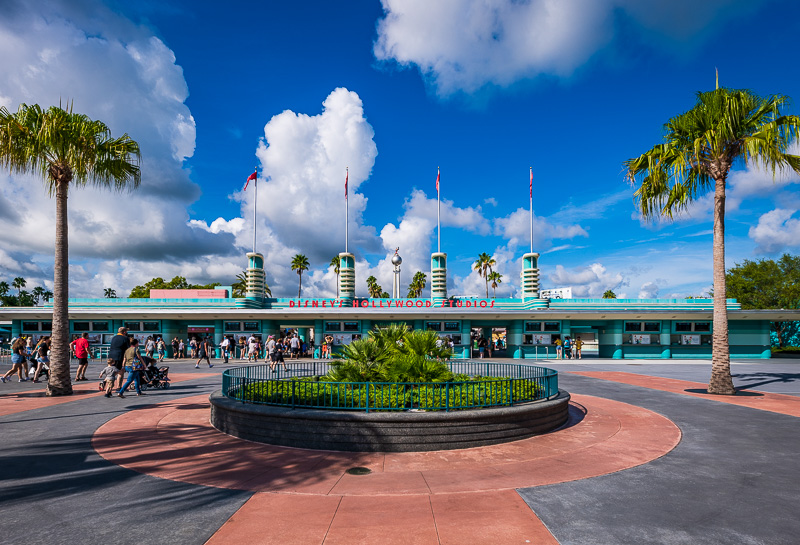
For those concerned that Walt Disney World won’t be able to accurately forecast attendance without park reservations, don’t be.
From an efficiency and resource allocation perspective, Walt Disney World should already be able to pretty accurately forecast tourist attendance thanks to both hotel occupancy rates and the date-based theme park ticket system. In fact, it’s likely that the latter system could be tweaked slightly to offer Disney exactly the info it would like without introducing even more friction and unnecessary hoops to the process.
A Walt Disney World vacation is already needlessly complicated and convoluted (even if many fans enjoy the planning, that’s not true of casual guests who find it overwhelming), so it behooves Disney to simplify the process where possible. In short, it’s entirely possible to achieve the same gains among tourists without Park Pass.
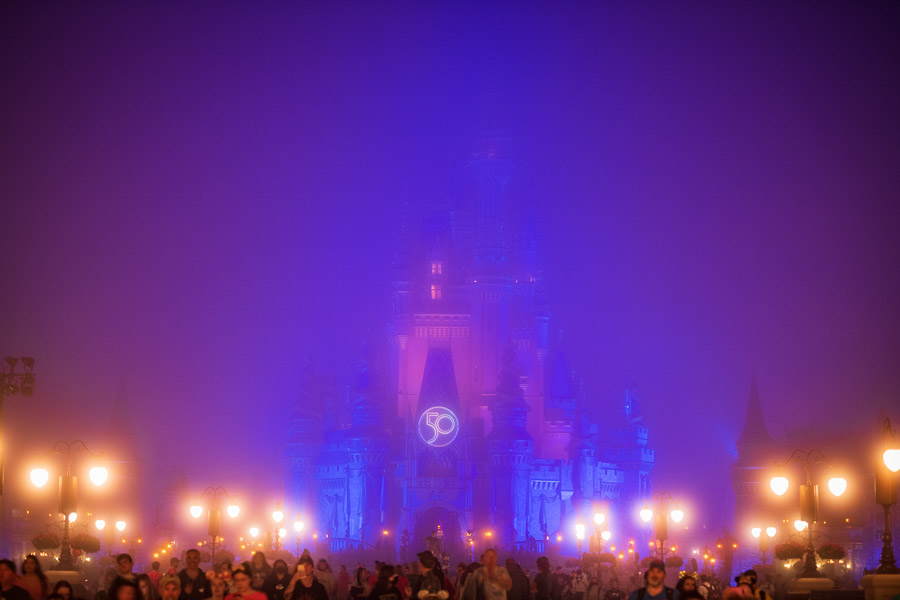
Ultimately, that’s a long-winded explanation for why Disney Park Pass existed in the first place and why it has now been retired for most regular single and multi-day tickets. From a resource allocation perspective, the theme park reservation system already offers little advantage over what already exists–it’s just extra friction in an already complicated vacation planning process.
By contrast, there’s no end date in sight for Annual Passholders needing to make reservations. Personally, as an AP, I’m expecting to be required to make reservations during weeks when crowd levels are forecast to be 8/10 or above for the rest of my days visiting Walt Disney World. Good-to-go days and no reservations after 2 p.m. are welcome relaxations, but we don’t expect anything beyond those changes. (We hesitate to say reservations will be “permanent” for APs because a recession or economic downturn could result in Disney dropping the reservation system for all in an attempt to lure back APs who hate park reservations.)
Honestly, so long as you’re not an out-of-state Annual Passholder (whomp whomp) who visits during busier times of year, it’s tough to construe the current compromise approach as of 2024 as a negative. For regular tourists, this is a “best of both worlds” solution. By retaining park reservations to some extent for Annual Passholders and Cast Members, it gives the company control over crowd distribution, at least to a degree. So you’ll continue to benefit from that if visiting during busier seasons. By dropping reservations for everyone else, it restores spontaneity.
Planning a Walt Disney World trip? Learn about hotels on our Walt Disney World Hotels Reviews page. For where to eat, read our Walt Disney World Restaurant Reviews. To save money on tickets or determine which type to buy, read our Tips for Saving Money on Walt Disney World Tickets post. Our What to Pack for Disney Trips post takes a unique look at clever items to take. For what to do and when to do it, our Walt Disney World Ride Guides will help. For comprehensive advice, the best place to start is our Walt Disney World Trip Planning Guide for everything you need to know!
YOUR THOUGHTS
Do you expect the Disney Park Pass reservation system to be retired at some point, or continue forever? Think Walt Disney World regrets requiring resort guests and theme park ticket holders to use Park Pass? Any questions we can help you answer? Hearing your feedback–even when you disagree with us–is both interesting to us and helpful to other readers, so please share your thoughts below in the comments!

Being an AP holder for years it was always my expectation that whatever pass I purchased with block-out dates that these were the only dates I couldn’t go to the parks. I understood these terms. The reservation system has added another layer of BLOCK-OUTS that I feel is limiting the value of my AP purchase. Unless I plan in advance with the reservation system and sometimes really long term planning we can not enter the park of our choice. As an AP holder I feel for every day we can’t get into a park Disney owes us money back. To further add insult to injury unless we pay for a Genie+ it is even rarer to get on a popular ride with out waiting over 90-120 minutes in a line with some popular rides not even available without Genie+. So add $15 per person more to get a skip the line pass. Now you have to be tied to a stressful phone to plan a day in the park. Disney says they are not a full capacity. With the wait times and limited park availability it is hard to believe they are not at capacity. If not at capacity then capacity needs to be redefined or has Disney already change what capacity is. When you build a DVC and resort structure that consistently needs to be filled believe me they are always past capacity. Disney has grown DVC and added new resorts and has not increased park sizes or created new parks to disburse the all the increased visitors. This is not what I signed up for.
Disney Magic is waking up, picking a park, and enjoying the day with your family not tied to electronics and all day planning. Seems to me we are trying to escape stress not create stress. AP Magic has been replaced with stress and the reservation system has devalued the AP program significantly.
So glad I never bought into DVC. Can’t imaging being tied to Disney for years to come and being limited on park entrance. I don’t think this is what Disney fans signed up for when purchasing a part of the Magic. For me I will not be renewing my AP. Thank you Disney for the Past memories.
I would love to see an article about the impact on the parks because of increased DVC offerings and expanded resorts on the same limited capacity on the four parks (MK, EPCOT, AK, and HS). To me this feels like timeshare bait and switch. Build a beautiful pool area and sell lots of homes around it. Keep building more homes and expand but don’t build more pool areas to the point the pool is ALWAYS overcrowded.
YES! It’s ridiculous. I actually had to buy a single day ticket to get into MK on Oct 1 because of this nonsense. So I feel they do owe me at least the $150 plus taxes and stress.
Huh. Reading over these comments, I never expected anyone to really have troubles with the park pass reservation system like this (I found it fairly straightforward and simple) but I do suppose I’m more technically-inclined than most. I wonder if this is a symptom of people rushing through the process and not reading all the text on the page when purchasing a ticket… Though it is surely something that could be simplified or eliminated as a pain point/as a UX issue, that would require Disney properly funding their digital experiences (websites, mobile apps) and unfortunately, given their history, I don’t think that’ll happen any time soon.
I like the Park Pass Reservation System and its intended purpose. It guarantees that I get into that park if I have a reservation. In the past, you could show up, and if the park was at capacity, you are not getting in. Happened to us during Thanksgiving week back in the early 2000s.
When we went when our son was little, as long as we had a reservation on Disney property we could get in any park we wanted.
A holiday should not be attached to my phone. When I take a holiday the idea is to leave the world behind and just go unencumbered by emails, texts and calls. I take pity upon those who view a sunset, or a glorious piece of art, or the spectacle of walking down Main Street by holding up a phone continually rather than enjoying the actual moment with their eyes.
By attaching the whole Disney experience; from start, then all day, to the bitter end; to my phone, Disney company has lost the magic that we all crave while on a holiday or visit.
Tom, thanks for the article.
We are a family of 4 and usually make a week trip to Disney every other year. Off years hubby and I would go to F&W for 4 nights. We are done for quite a while after our day trip there. We were at Hollywood Studios a couple of weeks ago for the day, then hopped to Epcot after 2:00. Got there at 9:00 am and the park was already packed. Crowded like I’ve never seen it before. So crowded it was hard to take a picture, walk through the crowds and you certainly could not enjoy the surroundings that Disney has to offer. By noon it was even more crowded. What is the purpose or a park reservation to control the crowds when the crowds were beyond what I’ve ever seen before even during peak season. This was not crowd control. There was no purpose for a park reservation. I was so disgusted. And disappointed. It was absolutely my worst day ever at Disney. First time back since the pandemic. I expected it to be crowded because of Star Wars but………….. Disney needs to get their act together. Not what it used to be.
Tom, interesting reading up on the trials and tribulations of NGE implementation via the linked articles. Imagineering’s perspective of preventing unnecessary technological complications from breaking the spell seems well founded to me. While I can see the potential benefits for Disney beginning to manifest via Genie it must be incredibly frustrating for those who spend their time crafting elaborate worlds that support suspension of disbelief to see a cell phone shaped wedge being driven between guests and their creations.
Here’s a pretty solid long form you tube video covering a lot of the same NGE issues.
https://www.google.com/search?q=fastpass+a+complicated+history&ie=UTF-8&oe=UTF-8&hl=en-us&client=safari
Thanks Tom for the article. Would love to know your thoughts on whether they will change (or lift) the park hopping restriction any time soon.
Even allowing it at 12:00 would be helpful.
Thanks!
They just seem somewhat unnecessary, like with FP+ you already knew what park I was going to based on what rides I reserved. And like you said it’s a date based ticket so like you know pretty much what days I’m going to be there. And let’s see if I have a reservation for CRT, they know I’ll be in MK! I mean it’s not 100% but yeah they can definitely forecast the crowd without them…
I totally agree! All the changes to the FastPass system with Genie+, was under the guise that it would make vacations more flexible with less advance planning. But if I have to plan ahead what park on each day I’ll be going to then I’d much prefer to just make my fast passes then as well! Now I have to plan in advance AND do the morning rush of Genie+/Lightning Lane reservations. While I am someone who liked the advance planning of the old FastPass+, I’m really hoping to see the park reservations go, that at least would create a bit more flexibility for day of decisions.
I have had an annual pass for all parks for the last 32 years I canceled mine and will not renew with the reservation requirement to let a $80 piece of plastic sit on a shelf collecting dust unused I paid monthly I also used my discount to shop at Disney all the time I live here. And have a full time job which I can’t take days off from to just sit at home and make reservations I work for law enforcement I feel the reservation system is a dumb idea just like everything else the pandemic is being used as an excuse to not work or do their job
Amen…..I agree.
as a new cast member, i am seriously and overwhelmingly disappointed. i wont say where i work, however i work front desk at one of the luxury resorts here on property. i get into work every morning at 6:30, and by 6:35 there is a line across my lobby, which is alternating complaints about park reservations, tears over genie+, and the occasional check in. these park reservations are not only negatively affecting normal guests and annual passholders, but they are seriously negatively affecting us cast. we were told, that the original purpose of the park passes was to control how many people were entering the park for covid reasons, which i understand. however, as a cast member, i have not been able to make a park pass literally since i started working here. ive tried to make them now multiple times over the past few months, however every time i try to make them on non blocked out days (which i have no gripes about cast blockouts, those are to be expected) there are literally none. i tried making them for *june*, but they are sold out. in april. i had a family member offer to purchase me an annual pass, but that isnt the point. this is one of my main benefits for working at disney! at this point im starting to believe the rumors that only ten cast members are allowed in each park per day now….
as someone who hasnt been to the parks since 2018 or 2019, there are so many new rides and experiences that i havent done. ive been trying to get into the parks so that i can ride all the new rides at least once, as i have guests coming up to my desk every day asking if its worth it to wait in the lines or purchase the lightning lanes for things like rise of the resistance, or mickey and minnies runaway railway. i cannot give them an answer, and it breaks my heart knowing that these guests are spending thousands of dollars to even speak to me, and i cannot tell them things about the parks because *i cant get in for even one day*.
That’s sickening to me as an AP and former CM. Back when I worked at MK, we would just go in the back through the tunnel on days off, or through CM entrances at the other parks. Do they actually check to see if you’re scheduled to work that day now? Sure, you could possibly be disciplined if caught in the parks, and you couldn’t use the crappy Genie either, but you could be there and do attractions and such. We weren’t supposed to use the resort pools, just the ones at Vista, but we did anyway. And yes, we got caught by Security once going to meet some girls we met in the parks at their resort. He saw the Vista Way sticker on my windshield. Oops. We never heard about it again though.
Please be aware that most of us guests appreciate the work you do!
I am so very sorry…..that is not only very sad….but, also, very wrong. Thanks for sharing.
We are DVC members. If my tickets are linked to my reservation, doesn’t it make sense to assume we’ll be using those tix while we’re there? I spent HOURS on the phone with multiple people to ensure we could get into any “1st” park, because my Hopper and Genie are useless without that. Cash grab? More like law suit. If the calendar changes so do things like dining reservations; this is a scheduling (and plan commitment) NIGHTMARE — no dreamy magic here. We were looking at adding on to our contract — sad to day that’s probably not happening. Too bad they don’t see people that are invested in spending money there yearly as more important data ticks… We loved the days when we could wake up and roll with whatever the day brought. No more. Very, very disappointed and sad….this isn’t the time share experience we bought 14 years ago…
And as a side note, charging for “Lighning Passes” via Genie is a really crummy thing to do to a big family. A WDW trip is expensive as it is — asking a family that’s been saving up for their big Disney trip for years to now pay for Fast-passes (a system that worked pretty darned well asit was, BTW) is just a lousy thing to do to less well-to-to families and little kids… I’m choking on a poison apple….
Wow! It is going to take lots more folks, like you, telling the facts about these new procedures that totally diminish guest experience. The only thing they will see is decreased profits….which should inevitably follow, decreased customer satisfaction. Thanks for sharing.
Wow, just wow. I’ve not been to Disney in some years. I am floored that this could be made a bigger pain in the butt than it was when we went twice with my son when he was young. I thought that taking a trip next year would be fun. I just read this entire article and it is now a solid no. Who wants all this to deal with AND, it is a very expensive trip. How can anyone think in terms of this being fun. Dread came over me, no thanks. How unfortunate.
I hate the idea of this- I am returning to WDW in May and honestly hope this is scrapped but know it probably won’t be. Where I am from the U.K. we come for typically longer, a week to 2 weeks and try to fit in as much as possible. We plan and plan but obviously want flexibility. It’s still a vacation and actually everything they’ve added is making it a more stressful process. If the weather is bad on a day I want to go to a water park, i don’t want the hassle of finding out one of the 4 main parks is full so I can’t go there instead and have a wasted day. It’s too much of a hassle to need to plan every single inch and not have the ability to change it once there.
We no longer have annual passes because of the reservation system. We used to go to the parks without having to plan in advance. We could just go. Sad to say, the magic is gone, replaced by a cumbersome reservation system. Who needs the hassle?
Honestly IF they want to keep the reservation system (please don’t) I feel like making it a step before booking (tickets or on property stays) so you don’t buy a ticket that may not be able to be actualized. For AP I can see where the plan is for keeping them from over crowding the “single use” tickets, but how many people worth AP bring single use ticket holders as family or friends come into town? I feel like make reservations a thing upto 24 hrs prior to park opening (for cast and AP) then let it be a space available system on the day of the trip. (So if they have 4000 unused reservations those go to the first 4k people to show up, meaning you want to get there as early as possible if that’s your intent but allowing a degree of flexibility)
I actually quit as a Cast Member due to the reservation system. The main perk for being a Cast Member, for me anyways, was the sign in privilege. Having friends or family meet me when I got off my shift, sign them in, spur of the moment stuff, all taken away by the reservation system. My last time strolling Downtown Disney, I asked my wife, “Wanna go in the Park for a while?” Oops, forgot reservations required, no can do. I searched as far as the calendar allowed and nothing available. So, I quit.
How sad is this…..DIsney isnt what it used to be an for people like you who worked for a fun job with perks its all a distant memory now….I also just cancelled my spring trip there …our last trip at Christmas was a nightmare …..GOodbye Disney i will be heading North this spring an spend alot less then i would of in parks…..does Disney care about my cancellation?? Nope……ps get a job at Universal !!!!
I no longer have an annual pass as I don’t want to deal with reservations and which park to attend first. This system has ruined the dland experience
We were there last March. It was probably our last trip. And that was before Genie and paid line skipping. We have been going twice a year for 29 years. We would do one day at each park knowing if the park was crazy we could hop somewhere else. And then the other days it was do what you want. This last trip we did one day at each park and left. We had additional reservations but the entire experience was so bad we just blew it off and went shopping in Orlando. Changed our flights and came home. We went to Disney to feel like a kid. What they have done requires more adulting than I want on my vacation.
As loyal every-other-year 6-8 day trippers when we happily spent 8 to 10k we are seriously rethinking the value of a WDW vacation. We enjoyed seamless airport transfers and easy planning using FPass and My Disney Experience included in our packages. Now we go cross eyed looking at the options and extra fees..may cancel our 8 days in Nov 2022.
I really miss Disney. We used to go yearly, but haven’t been since Covid. We would always budget 5-7K a year just for our trip. We want to go back now and refuse. We will not spend that kind of money on a regimented and controlling experience. We are a family that enjoys flexibility and being spur of the moment. We would often do all 4 parks in a day (depending on where we wanted to eat). The flexibility and endless daily possibilities were a huge part of our enjoyment. We loved waking up and deciding what to do for the day. It makes me very sad to think our last Disney trip was actually our final one. I am planning on closing my Chase Disney Credit card.